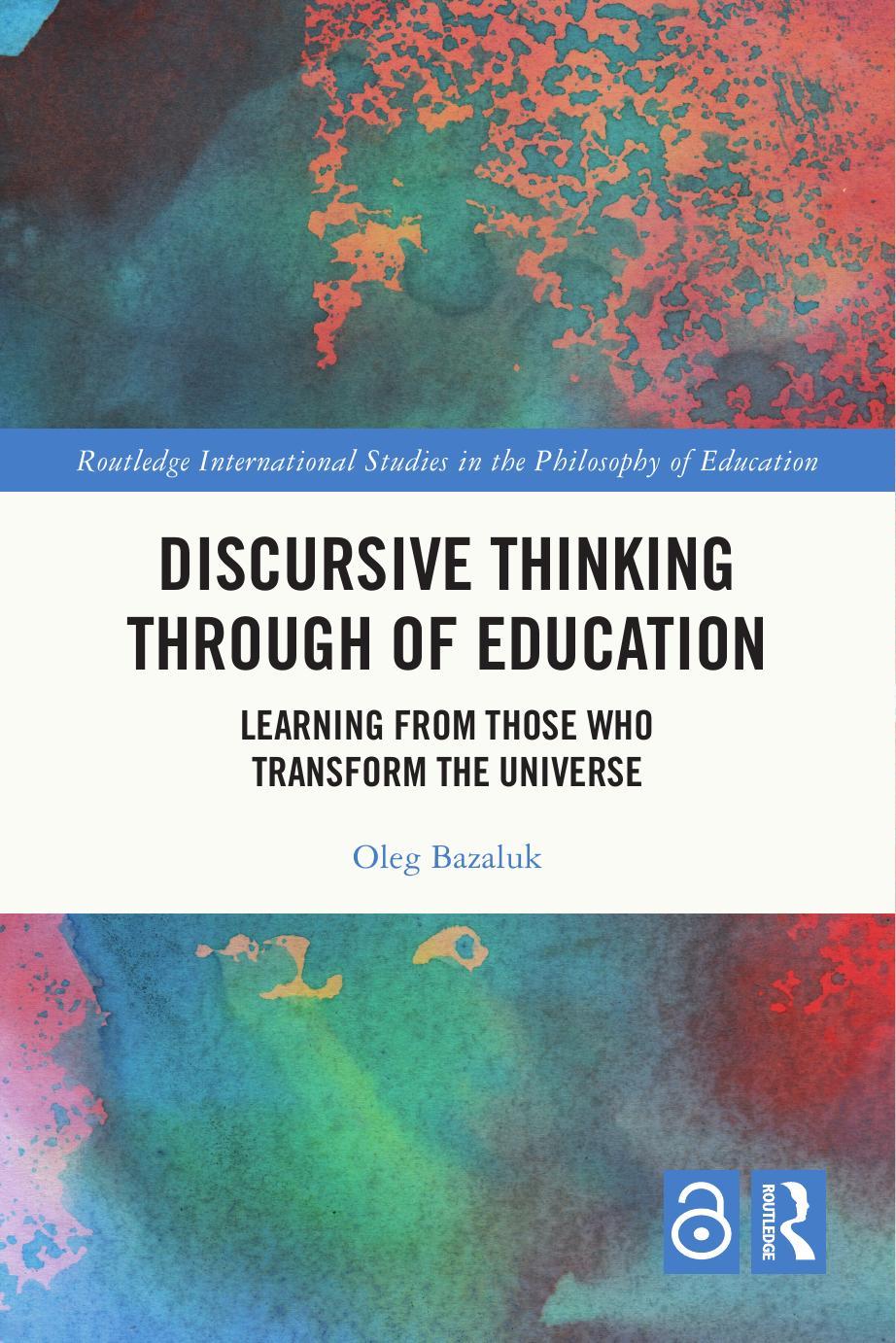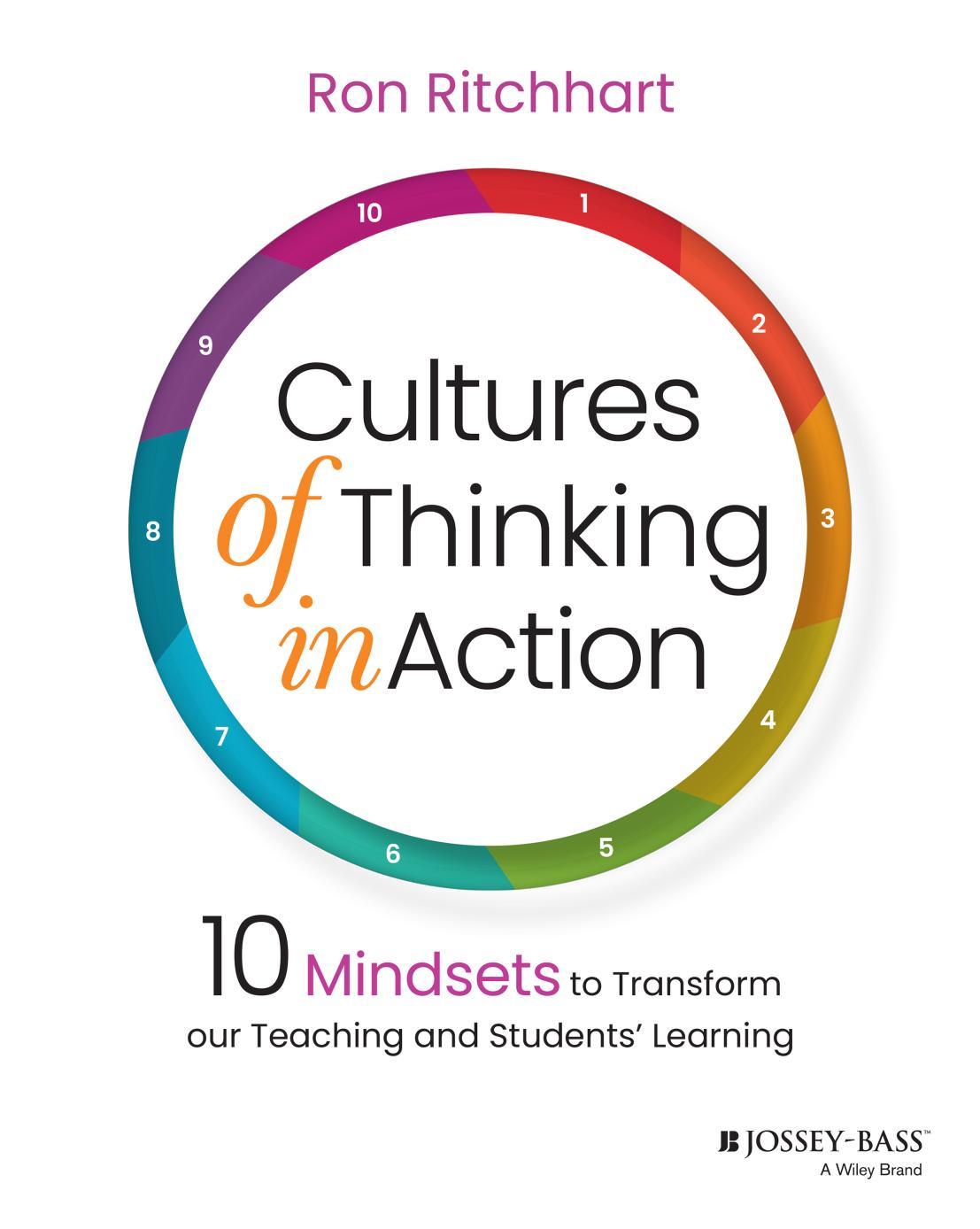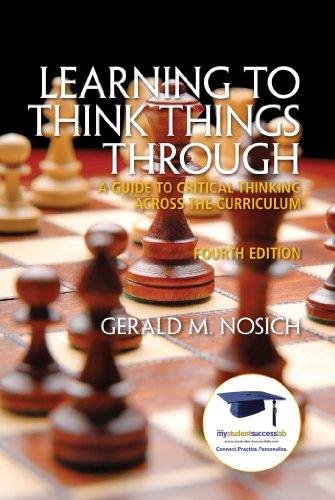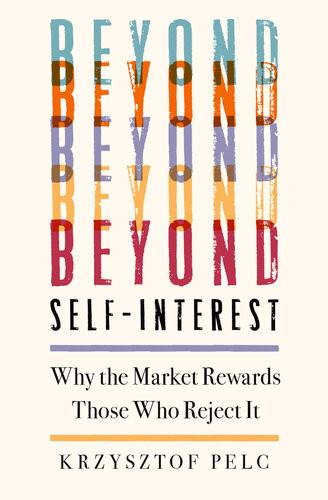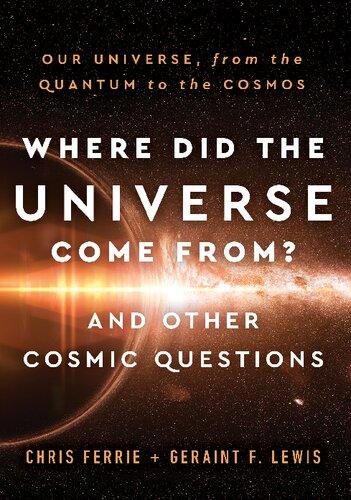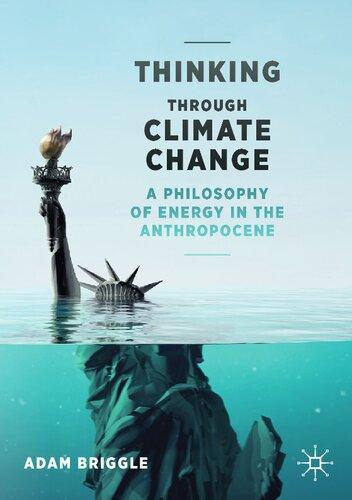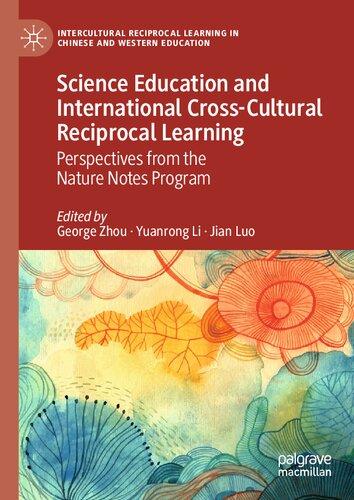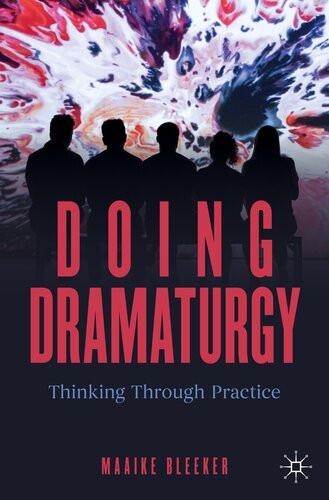Introduction
The first question to ask about Education is “What is its purpose?” “What is the teacher trying to do?” and Plato’s reply to this is, in form, the same as that of his predecessors, the 5th century Sophists; “to inculcate virtue (αρετή)” (Protagoras 325c).
But this statement at once confronts us with two problems — “What is virtue (ἀρετή)?” and “Can it be taught?”1
Russian aggression against Ukraine (2014–2023), Putin’s nuclear blackmail2 and the first armed seizure of nuclear power plants in world history3 brought to light the international institutions and the paradigm of global sustainability4 and the “just” world that they present. War and peace are the consequences of the managed processes that inform society about the quality of interstate building and ideologies of progress. Modern Global Governance and Global Institutions show their inability to avert and stop wars.
It is important for our study that government leaders of all levels who decide whether or not to make war are the products of an educational system. We must recognise that modern educational institutions at all levels of accreditation have enough time and opportunities “to inculcate virtue (aretē5)” and fulfil the goal stated by United Nations: “Providing quality education for all is fundamental to creating a peaceful and prosperous world.”6
However, the wars continue.
Nevertheless, why is this happening? At first glance, only two answers are possible. These are either current educational theories and national curricula that are inadequate or virtues (aretē) that could not be taught.
To understand the question, it is necessary to “turn” to its origins, namely, to Plato’s dialogues.
Plato used the verbs dialégesthai (διαλέγεσθαι) and dialégomai (δῐᾰλέγομαι) in similar meanings: “to practice dialectics,” “discursively think through,” or “to think discursively.”7 Discursive thinking through is the opportunity to use the force of discourse/dialectics8 to disclose a complexity of a phenomenon. The force of discourse/dialectics has distinguished philosophy in world history since its institutionalisation in Plato’s Academy.9 Discursive thinking through
DOI: 10.4324/9781003450726-1
This chapter has been made available under a CC BY NC ND 4.0 license.
of education is (a) to reveal the education process’s concealedness and (b) to exhibit this process by the force of dialectics.
The main idea of the book is a philosophical gaze on “self-evolving education.” Plato did not separate politeia10 and paideia.11 He has considered them as two key and complementary tools of philosophy.12 Philosophical discourse on education always transcends the narrow boundaries of modern “educational theories” and considers education as a tool equivalent to politeia. Philosophy investigates education only as an action: “I form,” “I give form” and, more precisely, as Plato wrote in the Republic, 13 I force to a specific way of life, i.e. to “do as I do,” to be transformed according to a specific image to imitate, a proto-type. 14 That is why education and child-rearing are inseparable in philosophy.15 Philosophical discursive thinking through of education is the development of a specific way of life that forces and transforms in accordance with the proclaimed “ideal” image.
Martin Heidegger has tried to oppose phenomenology to dialectics,16 but as a result, he regained the significance to Plato’s logos.17 Therefore, discursive thinking through of education of “Those who transform the Universe” is based on the rethinking of Plato’s diá-logos. 18 Plato’s lógos is proposed to be used as a work. Namely, on the one hand, in this meaning, it is “an authoritative beginning that makes continuity possible.”19 It helps to go beyond highly specialised terminology and its meanings to use its particular complexity to investigate an interdisciplinary global whole. However, the main reason is the influential work of Plato’s lógos, which acts as a link between the “World Order Studies” and the necessity to practice the results obtained in everyday life.20 Plato’s lógos excludes the separation between “theory” and “practice” in principle. It is always a holistic set of actions (interactions), which is denoted by the verbs: to consider, to ponder,21 to thoroughly investigate22 and beyond that, as follows from Socrates’ parting words,23 (i) to persuade, usually by fair means,24 (ii) to care for, to attend to25 and (iii) to exist, to be.26 The main feature of Plato’s lógos is that it does not provide for the victorious proclamation of “truth” in the form of one or another model or theory. It is an ascent to the paradigm wherein “the paradigm indicates how to go on, how to begin an enquiry or how to get beyond an impasse.”27
Plato developed the “discursively think through” practice as the méthodos28 to “begot” the virtue (aretē) and to grow it up.29 Philosophy as a concrete discourse and way of life was created during the Peloponnesian War30 and was proposed as a way “to go through” the war into peace based on a new paradigm. According to Julia Annas, Plato consistently, throughout his intellectual life, held to a very general thesis of political and social life: society will reach a state of sustainable development and prosperity only if it “has the unified overall aim of making its citizens happy (eudaimōn), and that that could be achieved only by having them educated and formed.”31 Thus, virtues (aretē) could be taught, and this platonic thesis is developed in the book.
In this case, the natural conclusion is that the problem of war and peace is rooted only in modern educational theories and their potential.
The first chapter shows the formation of two competing traditions in classical Greek education32: the philosophers and the sophists. The fundamental characteristics of these traditions are formulated. It is proved that modern education corresponds to the tradition the sophists formed.
The emphasis is placed on the philosophical view of “self-evolving education.” Its significance in world history is shown.
In Chapters 2–4, axioms for new educational theories are formulated. The theoretical framework is also postulated to order the collective discourse and a way of life in strict accordance with the idea, ideals and values of “Those who transform the Universe.”
Discursive thinking through of education “Those who transform the Universe” is the upward path to the key tools by which to create the “ideal” legal order, in which the laws of the cosmos exert a providential and directive influence on the way of life of people.
We shall enumerate Greek words that are used as terminus technicus, following the example of Heidegger’s Dasein. 33 In most cases, Greek words are fixed in the nominative case, and their meanings are argued by quotations from Plato’s dialogues.34
1 The adjective agathós35 and the phrase “the idea tou agathou”36 instead of “Good” and “the Idea of the Good.” Plato examined the etymology of agathós in the Cratilus. 37 Plato associated the adjective agathós with the adjective sophós, 38 and agathós always came first. According to Plato, the idea tou agathou is a reality “that gives disclosedness (alētheia) to the objects of knowledge and the force of knowing to the knower.”39 In Ancient Greece, the agathós concentrated in itself the whole set of concepts that have covered and still cover all man’s moral, intellectual and spiritual virtues. All of them are its derivatives. I consider agathós as a state of global sustainability and prosperity. The whole hierarchy of being and knowledge is based on agathós. “In like manner, then, you are to say that the objects of knowledge not only receive from the presence of the agathou their being known, but their very existence and essence is derived to them from it, though the agathou itself is not essence but still transcends essence in dignity and surpassing power.”40 According to Plato, the idea tou agathou is the highest idea, and it is developed in the book in the same meaning. I promote the idea tou agathou as the basis of a new paradigm. The idea tou agathou is a reality in which alētheia (disclosedness) is immanent to “nature.”
2 The adjective kalós41 instead of “beautiful,” “fine.”42 Plato was the first to single out from the diverse world of Greek Gods the collective image of the demiurge (God), who was only agathós43 and therefore created kalós and kállistos (superlative degree of kalós) cosmos (order).44 “[What is] difficult is kalós.”45 Plato clarified the meanings of kalós, subordinating them to the meanings of agathós. “All that is agathón is kalón, and the kalón is not excessive.”46
3 The nouns phrónēsis47 and sophía instead of “practical wisdom” and “wisdom.” The noun phrónēsis is a derivative of the verb phronéō (φρονέω). Plato used it in the meaning “must necessarily and inevitably think thoughts that are immortal and divine.”48 Plato defined phrónēsis as “perception of motion and flowing; or it might be understood as a benefit of motion; in either case, it has to do with bringing.”49 Plato emphasised the paramount importance of phrónēsis:50 “assimilation to God” is “to become righteous and pious51 and phronēseōs.”52 According to Plato, the culminating point of a man’s age is the maturity and prime (akme) for both body and phroniseos. 53 The term phrónēsis conveys the inseparable connection between intelligibility and practice, which resulted in the creation of kalós and “brought to perfection” forms (things).54 In Plato’s Apology, Socrates took credit for the care of the highest agathós and phrónēsis. 55 The noun sophía (σοφία) and the adjective sophós (σοφός) represented (a) knowledge and factual accuracy, (b) moral and educational integrity and (c) technical skill and aesthetic/emotional impact.56 Plato opposed sophía to ignorance,57 and the feature of Socrates was the “human sophía.”58 Human sophía was “little or no value”59 in comparison with the Sophía of God. However, the imitation of the Sophía of God distinguished the philosophers from the sophists,60 or literally sophón (σοφόν) from sophistikós (σοφιστικόν).61
4 Alētheia (ἀλήϑεια) and “disclosedness” instead of “truth.” Alētheia and “disclosedness” are used in the book as synonyms. The noun “disclosedness” (a) conveys Plato’s meanings62 and (b) corresponds to Heidegger’s terminology, which Thomas Sheehan adapted to the English language.63 “…of all agathón (good), for gods and men alike, alētheia stands first.”64 According to Plato, trustworthy philosophers are those who delight in the contemplation of alētheia 65
5 The nouns psukhē (ψῡχή) and aretē (ἀρετή) instead of “soul” and “virtue.” The etymology of psukhē and aretē is considered by Plato in the Cratylus66 and is specified in the text. Plato’s research was aimed at affirming the two main meanings of psukhē: (1) the psukhē is immortal,67 and its nature differs from the nature of the body.68 (2) Knowledge (epistēmē) is stored in psukhē, therefore, to seek for something and to know, in general, was called “recollection.”69 Plato considered aretē as the essence of psukhē, 70 “the flow of agathes psychís.”71 Aretē was disclosed by a specific discourse and way of life, philosophy 72 I develop the meanings of these terms in a new paradigm.
Notes
1 Bury [1937: 304–305].
2 On September 27, 2022, Dmitry Medvedev, Deputy Chairman of the Security Council of the Russian Federation, announced that “Russia has the right to use nuclear weapons, if needed” (Izvestiya, September 27, 2022).
3 The Russian armed forces captured Chornobyl (February 24, 2022) and Zaporizhzhya Nuclear Power Plants (February 28, 2022).
4 https://www.undp.org/sustainable-development-goals
5 Aretē (ἀρετή, noun), virtue (“moral excellence”), which is displayed to enrich life. (1) A virtuous course of thought, feeling and action; virtue, moral goodness; (2) Any particular moral excellence, such as modesty or purity [Thayer, 1995]. I selectively use Plato’s semantics and vocabulary. In most cases, these are primary words in Transliteration A according to The Liddell, Scott, Jones Ancient Greek Lexicon (LSJ). They are shown in italics. Greek words are used as the technical terms, so I do not stick to grammatical cases except for direct quotations. The meanings of the words are based on Plato’s dialogues, the Platonic corpus, the LSJ and Thayer’s Greek-English Lexicon of the New Testament.
6 The Sustainable Development Goals Repor t 2022. “In 2020, there were about 12 million pre-primary schoolteachers, 33 million primary school teachers and 38 million secondary school teachers working in classrooms around the world.” https://www.un.org/sustainabledevelopment/education/
7 “This is the word appropriated by Plato’s own medium to designate itself: ‘to engage in [Socratic] dialogue’ or ‘to practice dialectic’” [Nagy, 2002: 32].
8 τὴν τoῦ διαλέγεσθαι δύναµιν [Parmenides 135c1–2]. δύναμις, potency, i.e. a special ability to do a particular thing (a natural ability). The Romans translated dúnamis as potentia, which has formed the root of the English word “potential.”
9 “ We do have two relatively firm points to grasp in approaching Plato. One is the great influence on him of the Athenian Socrates, and the other is his founding of the Academy, the first philosophical school” [Annas, 2002: 19].
10 Politeía (πολιτεία, noun). The term is used in a broad sense, from “civil order, constitution of a polis (state)” to a “form of government.” Its meanings are equivalent to Plato’s Politeia (Πολιτεία, but the Republic in English). Politeia means a popular or relatively popular form of government in the public interest.
11 Paideia (παιδεία, noun), instruction that trains someone to reach full development (maturity) [Thayer, 1995].
12 Annas [2017].
13 Republic, Chapter Seven.
14 “ Viewed in the light of a number of parallels, this points to poetic heroization, and suggests that a cult of Socrates was practiced at the Academy. Hence, his monumentalization in both literary terms (Plato’s dialogues) and in more tangible ways (Socrates’ portrait by a plane-tree” [Capra, 2015].
15 At this point, I should like to record important a historical fact. In Ancient Greece, “the most important educative forces were not thought to be the school at all — an experience that was primarily for young children. Rather, the surviving literature identifies several educative forces including (a) a city and its laws, (b) fathers and other citizens, (c) poets, and (d) sophists and other ‘new’ educators” [Mintz, 2018: 7].
16 See Gonzalez [2009].
17 Lógos (λόγος, noun), (i) that which is said: word, sentence, speech; (ii) that which is thought: reason, consideration, computation.
18 “In the diálogos led by Socrates, the verb diérkhomai ‘to go through’ is regularly used to designate discussion, conceptualizing diálogos as traveling. The goals or ends of this investigative journey are portrayed as distant, remote, and difficult to reach” [Schur, 2015] with modification.
19 Nagy [2002: 70].
20 “Thus, in explaining the general principle that in all our actions we pursue the good, Socrates moves from ‘because we think it better’ (Grg. 468b) to ‘because we think it better for us’ without any apparent awareness that what is expressed in the second phrase is substantially different from what is expressed in the first” [Vlastos, 2000: 65].
21 Φροντίζω, “continuously connecting insight (enlightened inner perspective) to the necessary outward behaviour” [Thayer, 1995]. This verb describes the actions
(interactions) of Socrates in Symposium 220c6. “Though it may be only a coincidence, Alcibiades’ report of what the soldiers at Potidaea said about Socrates’ strange behaviour includes the verb φροντίζων” [Edmunds, 2006: 417].
22 ἀναζητέω (verb, from the intensifying prefix aná “up to down, completing a process” + zēteō), thoroughly investigate. τά τε μετέωρα φροντιστὴς καὶ
πάντα ἀνεζητηκὼς [Apology 18b7–8]. See Edmunds [2006] and Tell [2010].
23 Apology [36c4–36d1].
24 Πείθω ἕκαστον ὑμῶν πείθειν [Apology 36c4].
25 ἐπιμελεῖσθαι, ἐπιμεληθείη [Apology 36c5], ἐπιμελεῖσθαι [Apology 36d1].
26 ἔσοιτο [Apology 36c6].
27 Gill [2010: 176]. The noun “paradigm” is derived from the verb παραδείκνυμι, “exhibit side by side, to make comparisons” [Liddell & Scott, 1940].
28 Méthodos (μέθοδος, noun), path (hodos) of pursuit (meta-), to pursue one’s enquiry, or literally “the way to follow.”
29 τεκόντι δὲ ἀρετὴν ἀληθῆ καὶ θρεψαμένῳ [Symposium 212a4–5].
30 The Peloponnesian War (431–404 B.C.).
31 Annas [2017: 8].
32 I use the terms “education” and “paideia” as synonyms in the text. However, at the same time, I understand the noun “education” and the verb “to educate”, first of all, as Paîs (παῖς), child and the nouns derived from it Paidiá (παιδιά, noun), child’s play, Paideia (παιδεία, noun) and the verb Paideúō (παιδεύω, verb), rearing of a child, child-training. See Bury [1937].
33 Alexander Koyré proposed not to translate Dasein, and to use it as terminus technicus, especially, since in German language it is considered to be nothing more than terminus technicus heideggerianus [Koyré, 1999].
34 The Greek text is cited according to Burnet [1901, 1903; 1978; 1907] and Duke et al. [1995]. The author follows the translation (unless otherwise indicated) of Plato in twelve volumes, 1967–1979.
35 ἀγαθός; Agathou (αγαθού, masculine/neuter genitive singular); Agathón (ἀγαθόν, neuter nominative/accusative/vocative singular), good.
36 ή τοΰ άγαθού ίδέα [Republic 6.505a–6.509c; 6.510а–6.511d; 7.518a–7.518d; 7.532a–7.532c; 7.534c; 10.621c-d; Timaeus 29а].
37 See Cratylus [412c, 422a].
38 ἀγαθὸς καὶ σοφὸς [Meno 93e; Hippias Minor 367e].
39 Republic [6.508e]. Translated by Paul Shorey with modification.
40 Republic [6.509b]. Translated by Paul Shorey with modification.
41 καλός, adjective; neuter Kalón, καλόν, moral beauty, of fine quality; and Kállos (κάλλος, noun), beauty. Diogenes Laertius wrote, “He was the first to define the notion of kāloû (καλοῦ) as that which is bound up with whatever is praiseworthy (ἐπαινετοῦ) and rational (λογικοῦ) and useful (χρησίμου) and proper (πρέποντος) and becoming (ἁρμόττοντος)” [Diogenes Laertius, 1972: 3.1.79].
42 Cratylus [416b–416d].
43 δημιουργὸς ἀγαθός. God is agathón. God cannot be the cause of evil [Republic 2.379c].
44 Timaeus [29a].
45 χαλεπὰ τὰ καλά (Khalepà tà kalá) [Republic 4.435c; Hippias Major 304e]. This is the author’s translation of the proverb consisting of two adjectives. Other translations: “The good/beautiful things [are] difficult [to attain]”; “[What is] good/ beautiful [is] troublesome”; “beautiful things are difficult.”
46
47
48
49
, thoughtfulness, sagacity, insight.
[Timaeus 87c3–4].
[Timaeus 90c1]. Translated by W.R.M. Lamb.
[Cratylus 411d7–8]. Translated by Harold N.
Fowler with modification. Harold N. Fowler has translated the noun φορᾶς and the verb φέρεσθαί as motion. This is possible if we keep in mind that we are talking about the motion of the “Universe and heavenly bodies” (Liddell & Scott, 1940), and about an almost transparent allusion to Heraclitus’s motto: Πάντα ῥεῖ, “everything flows.” I have translated it literally. Φορᾶς and φέρεσθαί are derivatives of the verb φέρω, “bring” that is used when the object is an inanimate object, so φορᾶς is a motion, or a fragment, of what is “brought.”
50 “Heraclitus was the first philosopher to introduce the idea of φρόνησις (phrónēsis) to put it on a level with σοφία (sophía)” [Jaeger, 1946: 180], where phrónēsis is knowledge related to action.
51 The difference between δίκαιον and ὅσιον is that ὅσιον is sanctioned by the gods and contrary to δίκαιον, sanctioned by human laws.
52 ὁμοίωσις δὲ δίκαιον καὶ ὅσιον μετὰ φρονήσεως γενέσθαι [Theaetetus 176b2]. Translated by Harold N. Fowler with modification. Phronēseōs is genitive singular of phrónēsis
53 αὕτη ἀκμὴ σώματός τε καὶ φρονήσεως [Republic 461a1–2].
54 Cratylus [416d].
55 Apology [36c5–6].
56 Tell [2011: 16].
57 Protagoras [360d].
58 ἀνθρωπίνη σοφία [Apology 20d8].
59 Apology [23a].
60 Sophist [268d].
61 Sophist [268b].
62 For example, θεία τοῦ ὄντος φορὰ – “the divine act of being”; θεία ἄλη – “a divine wandering” (θεία ἄλη) [Cratylus 421b].
63 For example, “openness (the clearing) is thrown open” [Sheehan, 2014: xvii].
64 ἀλήθεια δὴ
[Laws 5.730c1–2]. Translated by R.G. Bury.
65 Republic [5. 475e].
66 Cratylus [399d–400b, 415d–е].
67 ἀθάνατος ἂν ἡ ψυχὴ εἴη [Meno 86b].
68 For example, Phaedo [115c–116a], Phaedrus [245c–249d] and Timaeus [34c].
69 “And really,” said Cebes, interrupting, “also according to that speech, Socrates, which you have been accustomed to say often, if it is true (alēthēs), that learning for us happens to be nothing other than recollection (anamnēsis), also according to this, there is a necessity, I suppose (pou), that we have learned in some previous time the things which we now recall (anamimnēskesthai)” [Phaedo 72e]. Translated by Gwenda-lin Grewal (March 6, 2021).
70 For example, [Symposium 209a].
71 ῥοὴν τῆς ἀγαθῆς ψυχῆς [Cratylus 415d].
72 Plato promotes this view in the dialogues Meno, Phaedo, and Republic
1 Education in History of Philosophy
1.1
Variety of educational theories
§1. We shall first clarify the term “education.” Education is considered in the Platonic sense as moulding in accordance with an ideal. Werner Jaeger argued that Plato was perhaps the first to use the word mould for the act. However, even before Plato, Protagoras viewed education as the form-creation of psukhē, and educational means as form-building forces.1 Jaeger convincingly proved that the Greeks were the first to recognise that “education means deliberately moulding human character in accordance with an ideal.”2 Jaeger showed the transformation of the meanings of paideia from “childrearing”3 to the development of “… connected with the highest areté possible to man: it was used to denote the sum-total of all ideal perfections of mind and body – complete kalokagathia.”4
Plato was the first to establish a connection between the process of obtaining knowledge and the movement towards the ideal. Ilsetraut Hadot wrote the following: “Plato’s education system should ultimately lead to a real culture, to παιδεία in the true sense of the word, i.e. to the harmonious development of the individual, the peak of which was the acquisition of wisdom as an art of living.”5
Martin Heidegger conveyed the initial meaning of education as follows: Education (literally “formation”) means two things. “On the one hand, ‘formation’ means ‘forming’ people in the sense of impressing on them a character that unfolds. But at the same time, this ‘forming’ of people ‘forms’ (or impresses a character on) people by antecedently taking measure in terms of some paradigmatic image, which for that reason is called the proto-type (Vorbild). Thus at one and the same time, ‘formation’ means impressing a character on people and guiding people by a paradigm. The contrary of παιδεία is απαιδευσία, lack of formation, where no fundamental bearing is awakened and unfolded, and where no normative proto-type is put forth.”6 Heidegger considers that in the allegory of the cave, Plato “wants to show that the essence of παιδεία does not consist in merely pouring knowledge into the unprepared soul as if it were some container held out empty and waiting. On the contrary, genuine education takes hold of our very soul and transforms it in its entirety
DOI: 10.4324/9781003450726-2
This chapter has been made available under a CC BY NC ND 4.0 license.
by first of all leading us to the place of our essential being and accustoming us to it.”7
Thus, thanks to the Greeks, the educational process became a culture for the first time: it became a process by which the whole personality is modelled on a fixed pattern, the proto-type 8
§ 2. Currently, discursive thinking through of education covers an enormous amount of particular knowledge from various fields of science, technology and culture. We shall provide the following example in order to give an idea of the diversity of knowledge involved in education. The superficial analysis of educational theories that are actively promoted at present has revealed the following features:
1 The term “theory” in relation to “education” is used with different meanings9: (a) the obverse of practice-theorising is thinking and reflecting as opposed to doing; (b) a generalising or explanatory model of some kind, e.g., a specific learning theory like constructivism; (c) a body of knowledge, which may or may not be associated with particular explanatory models. Theorising involves developing this body of knowledge.
2 A huge number of books and journals on education are published that promote a specific educational theory or their diversity, e.g., the website of John Wiley & Sons Publishing House issues more than 160 titles of printed matter to the request “education theory.”10 In addition to academic journals,11 John Wiley & Sons Publishing House has published the following books: “Educational Neuroscience” (2011), in which the relationship between the features of brain development and education is considered; “Jung and Educational Theory” (2012), in which Jung’s teaching and his contribution to the theory of education, the philosophy of education, the professional development of teachers, etc. are rethought; “Vygotsky: Philosophy and Education,” in which the author Jan Derry argues that Vygotsky’s central ideas about the nature of rationality and knowledge were informed by the philosophic tradition of Spinoza and Hegel. Derry shows the influence of Vygotsky on modern philosophers: Robert Brandom and John McDowell.12
3 Theories of education use an interdisciplinary approach. For example, Philip Wexler argues the influence of social theories of Emile Durkheim, Karl Marx and Maximilian Weber on education.13 Ramesh Mishra reveals the impact of politics and political systems on the organisation and management of educational process.14 Peter Hick, Ruth Kershner, Peter Farrell and others argue the importance of psychology for inclusive education.15 Tara Fenwick and Richard Edwards considered the impact of actor-network theory (ANT) on education.16
4 There are a large number of traditions and schools within the framework of which theories of education are created and developed. Education remains being influenced by Plato’s ideas17: Isocrates (1980), Origen (1885),
Education in History of Philosophy
St. Augustine (1998, 2007), John Locke (1913), Jean-Jacques Rousseau (1961), Friedrich Wilhelm von Humboldt,18 Rudolf Steiner (1996), John Dewey,19 Anton Makarenko (1986), Maria Montessori,20 Lev Vygotsky,21 Jean Piaget (1994), Paulo Freire (2003), Michael Barber (2011), etc.
§ 3. In fact, this is only a small part of the results of discursive thinking through of education. There is an acute need to systematise the results of thinking through of education and created education theories. Different approaches are proposed, including behaviouristic, social, constructivist, cognitive, experiential and humanist learning.
In addition, some authors systematise the theories of education within the boundaries of specific academic disciplines. For example, Allen Morrow and Carlos Torres (1995) proved the impact of social theories on the development of educational theories. Lyudmila Mikeshina (2002) explored the influence of epistemology on the philosophy of education. David Holbrook (1987) systematised the theories of education in relation to the development of ideas in philosophical anthropology.
Other authors approach the systematisation of theories of education guided by the national affiliation of the authors’ theories. For example, Valentin Rybalka (2015) systematised the theories of personality in psychology and pedagogy, which were developed at different times by Ukrainian scientists.
Some other authors systematise the theories of education in a state tradition. For example, Dickson Mungazi (1999) systematised the theory of education as the history of US education. In the “International Handbook of the History of Education” (2000), edited by Kadriya Salimova and Nana L. Dodde, the theories of education are systematised as the histories of education of the various states.
Many authors systematise the diversity of created theories of education according to historical periods, for example, Werner Jaeger (1986), HenriIrenee Marrou (1998), Greg Dimitriadis and George Kamberelis (2006), Terence Moore (2012), and others.
Some authors carry out a comprehensive systematisation of the theories of education on the basis of interdisciplinary knowledge. For example, there is the three-volume work by James Bowen (2003), which covers the development of Western education over the past 4,000 years.
To systematise the diversity of modern theories of education can be as follows22:
1 Curriculum theory. This group combines the theories and ideas of Johann Friedrich Herbart, David Snedden, John Dewey, Lester F. Ward, and others.23
2 Descriptive theories of education. For example, Carsten Ullrich (2008) considers the theories of behaviourism, cognitivism, constructivism, etc., as the descriptive theories of education.
3 Theories of educational neuroscience. For example, the development of ideas in this research area is represented in the book “Educational Neuroscience” (2011), edited by Kathryn E. Patten and Stephen R. Campbell.
4 Educational theorists. The subsystem includes authors whose ideas contributed to the development of educational theories, for example, Plato, Origen and St. Augustine.
5 Educational thought. This subsystem unites the ideas of politicians, journalists, business people, public and cultural figures, medical workers, etc., which enriched the development of the theories of education and teaching.24
6 Theories and practices of integral education, which consider the development of a child in the unity of body, emotions, mind, soul and spirit. Mostly these are the theories that develop the ideas of Sri Aurobindo.25
7 Mastery learning. The founder of this direction is considered Benjamin Bloom (1980).
8 Naturalistic education theory (NET) 26
9 Normative theories of education, which provide the norms, goals, and standards of education.27
10 Precision teaching. For the first time, precision teaching theory was offered by the American psychologist Ogden R. Lindsley. Currently, there are the theories and practices of Kent Johnson, Elizabeth M. Street and others.28
11 Thematic learning theory. 29
Discursive thinking through of educational theories has identified a wellsubstantiated explanation of the first fundamental characteristic that distinguished paideia since Plato’s dialogues. Namely, paideia is a child’s play (paidiá) specially created to incantation30 the child’s nature. Through child’s play (paidiá), paideia assimilates the child into the institutionalised social environment and its practices. Thus, it forms an individual capability of acting and being acted upon with a particular focus and limits.
The first fundamental characteristic defines the mission of paideia. It means to eliminate the opposition between child’s play (paidiá) and serious engagement (spoudē),31 and therefore between individual actions (interactions) in childhood and adulthood, which is subordinate to politeia.
Moreover, discursive thinking through of modern education notes the highquality development of the second fundamental characteristic. Plato emphasised that the straight lógos32 of the law,33 which draws children’s character and directs every child34 to practice this or that way of life, is affected by paideia. Paideia provides “paideian35 children forth from aretēn, 36 which makes a man eagerly desirous of becoming a perfect citizen, knowing how both to rule and be subject of a right.”37 Thus, paideia forms stress-free “passing through” the “child’s play” into politeia and necessary correspondence between individual and social psychology. All current educational theories, regardless of their purposes and tasks, are subordinate to politeia and serve certain political regimes.
Education in History of Philosophy
At the same time, discursive thinking through of modern education found its fundamental difference from the philosophical view of “self-evolving education.” This difference severely threatens peace and sustainable development at the global level.
1.2 Research méthodos (“the way to follow”)
§ 4. The noun méthodos, literally “the way to follow,” is a guideline for the researcher. Our discursive thinking through of education méthodos was proposed by Alexander Lyubishchev in the book “Lines of Democritus and Plato in the History of Culture.”38 We refined Lyubishchev’s approach by the research results of Werner Jaeger, Henri-Irenee Marrou, Pierre Hadot, and Julia Annas.39 As a result, the sum of knowledge about education was systematised and represented by two traditions: the philosophers and sophists.
The traditions of philosophers and sophists take their origin from “Homer’s education.”40 In the Republic, Plato wrote, “… when you meet encomiasts of Homer who tell us that this poet has been the educator (πεπαίδευκεν) of Hellas, and that for the conduct and refinement of human life, he is worthy of our study and devotion, and that we should order our entire lives by the guidance of this poet we must love and salute them.”41 The Homeric epic’s educational significance lay in the fact that there was a formulated moral ideal, which the Greeks in most followed throughout the history of Ancient Greece. Marrou formulated this ideal in the phrase: “it was a heroic morality of honour.”42
Conceptual and empirical differentiation of two traditions in education (paideia) started with Socrates. Socrates opposed his way of thinking and the way of life of the sophists. Socrates, during his lifetime, was known as átopos (unclassifiable, high originality).43 He urged to take care of psukhē, 44 and not concentrate on achieving earthly benefits. The “care of psukhē,” in Socrates’ understanding, was the necessity of taking thought for phrónēsis, alētheia, and the perfection of one’s psukhē 45
Hadot stated that before Socrates, paideia development was provided by two types of people. On the one hand, Parmenides, Empedocles, Heraclitus, and other alētheia (truth) teachers opposed their speculations to the crowd’s ignorance. On the other hand, the sophists were convinced that knowledge could be sold to each and everyone.46 With his way of life, Socrates formed the third type of teacher, scholarchēs.
Scholarchēs did not consider paideia as a way of transferring specific knowledge to disciples. Paideia was a way to teach disciples to live in a certain way. That is why, Socrates’ disciples could have knowledge and lead a discourse that was at odds with Socrates’ views. It was not typical for education in ancient Greece. However, such an approach to disciples allowed philosophy to progress. After the death of Socrates, Antisthenes, Aristippus, Euclid and Plato established their own schools, which had a significant influence on the development of world history. Antisthenes was a founder of cynicism, which significantly influenced Stoicism. Aristippus was a founder of Cyrenaics, which
significantly influenced Epicureanism. Euclid founded the Megarian school, famous for its dialectic. Plato’s school became a forerunner of modern religion and spirituality in Western Europe. All above mentioned schools were united by a common approach towards education. They were united by philosophy, “… both as a specific discourse linked to a way of life, and as a way of life linked to a specific discourse.”47
It is beyond argument that in Athens and other cities of ancient Greece, there were enough scholarchēs. Probably, not all of them were the owners of the teaching place. Apparently, they were distinguished by other characteristics. However, all scholarchēs were united by the common approach to forming the worldview and way of life of disciples, i.e. philosophy. Scholarchēs taught two to three disciples simultaneously, though, subsequently, the number of disciples grew considerably. The disciples were of full age and chose scholarchēs independently. They could leave the school anytime and choose another teaching place. Education was not limited in time and could last for decades. Scholarchēs did not take money for teaching because he considered the cooperative ascension to the highest idea as God’s behest.48 Most of the time, the disciple spent with scholarchēs at his territory. For example, Aristotle studied in the Academy for twenty years until Plato’s death. Theophrastus was Aristotle’s disciple until the death of the latter. Aristotle appointed him the guardian of the children and the Lyceum scholarchēs. Porphyry was a disciple of Plotinus for six years and left scholarchēs only at his request.
The current popularity of the term “life-long learning,” created by Leslie Watkins in 1993, is quite surprising. In the 4th century B.C., the term “philosophy” represented these meanings much wider and more authoritative. The more significant part of Plato’s dialogues was all over the revealing of the lifelong learners. The key dialogue was the Republic. These meanings made the philosophical school recognisable in world history. “Only those who are fifty years old, who have survived the tests and approved themselves altogether the best in every task and form of knowledge, must be brought at last to the goal.”49
§ 5. The noun philosophia and the adjective philósophos appeared in ancient Greece later than the noun sophist. 50 The sophist was derived from the verb sophiso, “become or be clever or skilled in a thing.”51 The philosophos was a derivative of two adjectives: phílos, “that which is loved or important,” and sophós, “skilled in any handicraft or art, clever.”52 We need to specify the meanings of the key terms to understand the reason for the separation of two traditions from the “Homeric education,” as well as the difference between philosophers and sophists
Currently, translators use the words “wisdom,” “wise” and “sage” instead of the Greek σοφία (sophía) and σοφός (sophós). The words sophía and sophós appeared around the 5th century B.C. and stayed in use in European and Middle Eastern spiritual culture till the 19th century A.D.53 Their meanings have evolved over 2,000 years. The word “wisdom” re-creates only a part of the story.
Education in History of Philosophy
The noun “wisdom” appeared only in the 12th century. It derives from Old English wīsdōm. The word meant “accumulated philosophical learning: knowledge.”54 The adjective “wise” appeared at the same time and meant those who “are characterized by wisdom: marked by deep understanding, keen discernment, and a capacity for sound judgment.” It was not until the 14th century that the English language was enriched with another noun, “sage,” from the Latin sapere, “to be wise.”55
The definition of “wisdom,” given in the Modern Cambridge University Press Dictionary, is “the ability to use your knowledge and experience to make good decisions and judgments.”56 However, how can one understand the key opposition of “wise” and “not wise”? Socrates (according to Plato) saw his destiny in the following: “Therefore I am still even now going about and searching and investigating at God’s behest anyone, whether citizen or foreigner, who I think is wise; and when he does not seem so to me, I give aid to the god and show that he is not wise.”57 In Socrates’s view, only the God was wise. He called himself “not wise,” but the one who, by God’s behest, had to prove to anyone that he/she was “not wise.”58
As a matter of fact, Plato used the adjective sophós: “is not sophós.”59 When the adjective sophós is used in such a way, it reveals entirely new meanings of the phrase that correspond to the cultural context in which it was written. First of all, it is the transformation of sophía into an “ideal” image to imitate, an ideal. For our research, it is essential to restore three meanings of sophía and sophós. 60
1 “Pre-philosophical” meaning of the noun sophía. In ancient Greece, the term sophía was used to specify the outstanding qualities of people “given to them by Gods.”61 That meaning was fully disclosed in opposition of the two Ancient Greek words sophía and technē. The first word Greeks used to denote giftedness, prudence, exemplarity, and other highest moral qualities, which formed unique and incomprehensible human nature, his/her aretē. It was believed that those qualities a human got from the Gods at birth. In the latter case, the word emphasised hard skills, competence, knack, success, and other qualities that were acquired by training, practice, and life experience. In the Greek world, the qualities of sophía were possessed by the most revered Gods: Metis and Athena. Metis combined shrewdness, deep thought and cunning. Homer described her features to the fullest in the character of Odysseus. Athena, daughter of Zeus and Metis, embodied the military power of her father and the “divine intelligence” of her mother. Plato wrote that Athena had the “intelligence of God,” and her name meant “who knows divine things.”62
2 The second meaning of the word sophía was developed by the sophists. Let us formulate it with the phrase “the general higher education.” The sophists were the first professional educators. They travelled around the Greek world and were invited to gain, on a paid basis, knowledge and skills that went beyond the traditional paideia: basic literacy, arithmetic, music and
physical education. The sophists claimed that only they had privileged access to sophía, i.e. knowledge about the gods, man and society. This knowledge was divinely inspired in them, and their mission was to transmit it (paideia).63 Plato wrote ironically about the sophists that they were sophíān sophie (“wise in some wisdom greater than human”).64 The phrases “wisely wise” (σοφίαν σοφοί) or “wise with wisdom” (σοφί σοφός) are examples of the abasement of divine meanings of sophía.
3 The third meaning of the word sophía was developed by philosophers. Starting with Heraclitus, the term sophía was used to denote the highest universal force that created “Order.”65 Plato enriched and specified these meanings.66 Sophía was proper only to the God67 and was promoted as an “ideal” image, the movement to which transformed a man. The man was transformed into the daímōn68 – the “guardians of mortal men.”69 The daímōns possessed “human sophía,”70 which was higher than sophía of the public men, the nature of poets, those of tragedies, and those of dithyrambs, and the rest, and art of hand-workers. It was based on the awareness of one’s ignorance.71
Thus, in the Academy, sophía was considered an “ideal” image,72 the movement towards which, on the one hand, was associated with the acquisition of certain knowledge and skills. On the other hand, it ordered (moulded) the focus and limits of individual self-realisation in accordance with the intelligible complexity of the cosmos.73
We shall highlight the views of sophists and philosophers on education. § 6. Contemporaries know the views of the sophists on education, mainly from Plato’s dialogues. There is no doubt that Plato created philosophy precisely in opposition to the sophists’ discourse and way of life.74 During the Socratic period of ancient Greece, the sophists had great influence due to the demand for new methods of persuasion and argumentation. Athenian democracy reached its heyday. Therefore, the art of speech and the ability to convince people were society’s most highly demanded qualities.75
Various representatives of the intellectual elite, such as Protagoras, Gorgias and Hippias, used the common approach. That allowed us to talk about the sophists as “a competing tradition.”76
In the sophist tradition, a connection between the teacher’s way of life and the knowledge given to the disciples was not provided. The sophists used the opportunities of paideia to develop disciples’ oratory and dispute skills, as well as to transfer knowledge and skills that were in demand in society. The school of Isocrates was very famous in Athens. In spite of the fact that Isocrates considered himself a philosopher and opposed the educational principles of his school with the sophists’ practice, namely, his approach to education most fully disclosed the views of the sophists.
Isocrates founded his school in Athens in 393 B.C., and Plato founded the Academy much later, between 387 and 361 B.C. Isocrates’ school operated for half a century. In the Antidosis, Isocrates came to the following
conclusions: “When anyone elects to speak or write discourses which are worthy of praise and honor, (…) which are great and honorable, devoted to the welfare of man and our common agathós, (…) he will feel their influence not only in the preparation of a given discourse but in all the actions of his life. It follows, then, that the power to speak well and think right will reward the man who approaches the art of discourse with love of sophía and love of honor.”77 Isocrates’ education led up to a cult of the understanding of the basics of eloquence, grammar and speech styles.
Isocrates’ education was based on the demand for a “high culture.” In the Protagoras, Plato state that despite the sophists recognising the significant role of knowledge, their moral and political education was not based on it.78 Isocrates focused on the training of intellectuals in demand in Greek society: eloquent, talkative and well-educated people who possessed a developed aesthetic taste and skills of creative self-expression.79
Isocrates developed in his disciples the knowledge and skills most in demand in society. Isocrates’ model of education prepared a man of general culture who could adapt to any societal changes and be realised in any sphere of activity: politics, art and spheres of production. Isocrates believed that it was more useful for disciples to receive correct ideas about the pressing problems in society than to go into unnecessary subtleties and achieve accurate knowledge in completely useless matters. Daily life did not require new amazing ideas; it required experienced common sense, the source of which was tradition.80
The difference between sophists and philosophers is clearly disclosed in their understanding of lógos. Lógos, along with sophía, was one of the key terms in the culture of ancient Greece. According to Heraclitus, “The Logos is the reasonable connection of the world-whole, its objective law, internal thought and the meaning of the world process.”81 Both the sophists and the philosophers attached great importance to lógos. However, the sophists viewed lógos as the development of external speech: technical and brilliant. The sophists taught dialogue skills: dialectical, formal, logical, etc. They promoted lógos as the art of speech. Even recognising “philosophical speech” in lógos, the sophists did not identify it with philosophers. Philosophers in ancient Greece were átopos.82
According to Plato, the cosmos came into being thanks to the demiurge. The cosmos was opened by psukhē in lógos and phrónēsis. 83 Therefore, Plato used the term lógos not in the meaning of “external speech,” as the sophists did. Plato used lógos to affirm a new way of life in accordance with the intelligible cosmos and “to live by what has been said.”84 Therefore, Plato placed discourse as an exercise higher than the results obtained, and Aristotle gave the discussion of problems more educational value than their solutions.85
§ 7. Socrates was the first to doubt the understanding of sophía by the sophists, as well as the ways and the very fact of its achievement.
Socrates left no notes. We form our opinion on Socrates as a historical figure and founder of a new tradition in education directly through the notes of his disciples and fellow citizens. Plato’s dialogues contain the main
information about Socrates. Socrates was not unique in his contemptuous disregard of written work. In Greek paideia, eloquence and rhetoric were valued much more than writing. Writing was rarely used, and its purpose was significantly different. According to Hadot, until the end of the Hellenistic period, scholarchēs used written works as “notes” for conversations and lessons.86
The leading role in the development of the philosophical tradition in ancient Greece was played by an atypical understanding of the cultural ideal and the way of its achievement.
The philosophical tradition did not provide for the mastery of sophía. In contrast to the sophists, Socrates repeatedly declared that he was not-sophós (not-wise) and could never master the qualities of sophía, which only the Gods owned.87 Thus, the first distinguishing feature of the philosophical life proposed by Plato in the Academy was the presence of an “ideal” image to imitate. In Plato’s philosophy, the focus on mastering the qualities of sophía transformed the philosopher into an “overman.” In the Symposium, the prophetess Diotima accounted a person with the qualities of sophía as a daímōn, a mediator between “the divine and the mortal.” The daímōn had the force of “interpreting and transporting human things to the gods and divine things to men; entreaties and sacrifices from below, and ordinances and requitals from above: being midway between, it makes each to supplement the other, so that the whole is combined in one. Through it are conveyed all divination and priestcraft concerning sacrifice and ritual and incantations, and all soothsaying and sorcery. God with a man does not mingle: but the daímōn is the means of all society and converse of men with gods and of gods with men, whether waking or asleep.”88
Plato used knowledge of the cosmos to affirm sophía as an “ideal” image and to prove the significance of philosophers as guides in the cosmos (Order) created by the demiurge. Plato presented philosophers as carriers of the agathós and sophós89 and, accordingly, creators of the politeia as an image of the cosmos. Politeia had several meanings for the Greeks: from a “state” to a “form of government.” Consequently, the knowledge of the cosmos converted philosophers into creators of a stable and prosperous polis/state.90
In Plato’s view, the body of the cosmos is eternal, stable and permanent. To become a guide in the cosmos or a mediator between Gods and people, a man needed to free psukhē from the body. In the depths of psukhē, there was an aretē in which sophía was concentrated. Mastering the qualities of sophía, i.e. phrónēsis, turned a man into a philosopher or, equivalently, into a daímōn, a demigod. The philosopher disclosed the complexity of the cosmos and saw the essences of the things.91 He heard God’s behest,92 which endued him with the force to transform real life in accordance with an image of the intelligible cosmos.
The second distinguishing feature of the philosophical life institutionalised by Plato in the Academy was the way of an “ideal” image achievement. The possession of sophía was the most desired purpose in the life of every Greek. The sophists used that desire for their own benefit. Unlike them, Plato argued:
only those obsessed (φιλ-) by sophía93 become sophós, i.e. those who are transformed in accordance with it as an “ideal” image to imitate. The Gods pointed the first philosophers’ way on the pronaos of the Temple of Apollo at Delphi: “Know thyself.”94
Plato viewed the obsession with sophía as an appeal to génesis, 95 i.e. to the source of psukhē. Psukhē could be freed from the body and transcend into the agathós and sophós only by discursive thinking through. “The sophón must be sophón for himself especially.”96 At this phase, spoken by Socrates in an ironic context, Plato formulated one of the key purposes of philosophical education. A man, possessing the qualities of sophía (sophón), should keep it especially for himself, because it is he, the philosopher, who is responsible for the stability and prosperity of the order created in the image of the cosmos. The more the philosopher will “be sophón for himself,” the more he will comprehend (phronéō) the complexity of the cosmos and, accordingly, he will convey authentic knowledge to people. To love sophía meant to take on the responsibility of a mediator between God and men, namely, (а) to bring to men the answers to the questions, “Who is that God?”97 and “Then whatever is man?”,98 and (b) to force men “to follow in God’s footsteps.”99
Self-knowledge occupied an important place in philosophical life.100 For example, in the First Alcibiades, Plato described the efforts, or rather “labour pains,” that Alcibiades should suffer (124b) to master sophía. Plato compared the process of mastering knowledge with maieutic art.101 “Are we then, my friend, still pregnant and in travail with knowledge, or have we brought forth everything?” Socrates asked Theaetetus.102 Plato considered the process of sophía achievement as a steady and continuous self-appeal, a return to the original and magnetic depths of agathós.
Self-appeal initiated the birth of knowledge, which disclosed a new complexity of “Order,” and it prepared the philosopher for even greater labour pains, for new knowledge. In the First Alcibiades, Plato revealed the essence of the process. “Then whatever is man?” (129e). “He turns out to be nothing else than psukhē” (130c). Taking care of psukhē is the way that prompted Pythia to achieve sophía. In addition, heading that way, the philosopher made his first significant discovery: “Everyone is agathós in that wherein he is phrónimos.”103
In the Theaetetus, Plato formulated two ways of human life: a philosopher’s and a non-philosopher’s. The philosopher’s way of life was “assimilation to God as far as possible,” which meant “to become righteous and holy and phronēseōs.”104 Plato used the noun phrónēsis to emphasise once again that philosophical life was a practice, “taking up use”105 from the intelligible and taking care of kalós and agathós.
Plato described the way of life of a non-philosopher as seeking “all the other kinds of seeming cleverness and sophíai,” which actually “are paltry.”106 In this case, Plato used the word sophía with pejorative connotations used by sophists and poets. Plato disclosed two different approaches to understanding sophía by contrasting the ways of life of a philosopher and a non-philosopher. In the
former case, philosophy was the upward path to phrónēsis. In the latter case, a man followed the sophists and remained ignorant.
The focus of philosophy on self-awareness and self-transformation allowed philosophers to measure up their thoughts and actions with the intelligible cosmos. Philosophers have discovered the source of evil. The genesis of evil was concentrated not in things and the existing order but in value judgements of things, i.e. in people’s ignorance. In the Gorgias, Plato called ignorance the worst of evils.107 Ignorance was the cause of suffering, misfortune, unhappiness, as well as other factors of instability that abased humanity. Therefore, Plato considered rational knowledge (dialectics) and the possession of authentic knowledge as the highest value of education.
In the Timaeus, Plato showed the scale of knowledge necessary to establish stable and prosperous politeia as the image of the kalós cosmos in real life. Plato considered that the disciples of the Academy should understand the genesis of the cosmos (Timaeus, 28a–34b, 52d–53b), psukhē (Timaeus, 34b–36e), the stars and the planets (Timaeus, 36b–e, 38c–39e), etc. In the Republic, the Laws and the Epinomis, Plato specified and enriched the knowledge and used it to prove kalós politeia, society and human.
Knowledge was changing the value judgements and endowed philosophers with a deeper knowledge of truly valuable things in life, unlike other people. Plato positioned philosophers as the only “bearers” of the kalokagathia 108 In the Republic, Book VII, the allegory of the cave proves the understanding of knowledge as a liberating force that liberates the psukhē from ignorance. Only those who are fifty years old, “who have survived the tests and approved themselves altogether the best in every task and form of knowledge, must be brought at last to the goal. We shall require them to turn upwards the vision of their psūkhês and fix their gaze on that which sheds light on all, and when they have thus beheld the agathós itself, they shall use it as a pattern for the right ordering of the pólin and the citizens and themselves throughout the remainder of their lives.”109
In the concept of Aristotle’s general culture, “Only a philosopher can truly ‘know’ anything because he has a knowledge of higher principles; and whoever did not study the ‘first philosophy,’ he would forever remain only ‘educated,’ even if his education is universal.”110
§ 8. Philosophy was formed and developed mainly in Athens. This continued until the end of the Hellenistic era. The teaching of philosophy was based on a living word whose authority and significance reinforced the scholarch’s way of life. Socrates opened people’s eyes to their ignorance with words and speeches full of irony, sarcasm and pretence. Socrates’s way of life gained significance and power to his words. Alcibiades, the eminent Athenian statesman and military commander, spoke of Socrates as follows, “And there is one experience I have in the presence of this man alone, such as nobody would expect in me; and that is, to be made to feel ashamed; he alone can make me feel it.”111
Jaeger showed how Plato and other disciples were deeply impressed by Socrates’ conscious choice of death.112 By voluntarily drinking a cup of poison
instead of making concessions to his accusers, Socrates proved the force of the values and way of life he proclaimed to his disciples.
Socrates’ life choice affirmed the dominance of psukhē over the body and established the third feature of philosophical life. It is the necessity for personality transformation on the way to an “ideal” image. Authentic knowledge was born as a result of self-knowledge. Only the one who changed his discourse and way of life under its influence could attain the phrónēsis. That was why Plato wrote his dialogues to form people rather than to inform them. Plato’s dialogues were focused on the human moulding in accordance with the life and death of Socrates, who came closest to sophía. 113
Plato opened the Academy at a mature age when he achieved “the peak of creative forces” (akme).114 The image of philosophy institutionalised in the Academy was the embodiment of his life and gathered experience, including experience in state governance. Plato was born in Athens into an influential aristocratic family and was proud of his lineage. In his dialogues, Plato repeatedly introduced his relatives of consequence115 and showed his interest in political events, state governance and intellectual movements of his time. Plato survived the thirty years’ Peloponnesian War and comprehended the destructive role of politeia in the disastrous effects of war for Athens.116 Plato could compare the education in victorious Sparta with the education that prevailed in Athens. Therefore, Plato did not create philosophy as a theoretical doctrine. Philosophy was created as a way to form a new caste of rulers who could ensure the prosperity of the Greek world.117 In modern terminology, we would say that Plato developed philosophy as a specific approach to the formation of state employees capable of ensuring sustainable development and prosperity of the state and its citizens in accordance with the intelligible complexity of the cosmos. The philosophical school had its history that began with “lovers and disciples of the Spartan culture,”118 as well as “an independent subject and method.”119
Socrates, а s the “ideal” image of the philosopher, was not chosen by chance. Socrates lived the life of a warrior who did not change his way of thinking and way of life under the influence of the people around him. Socrates did not sacrifice his principles facing the death. He persuaded and served his God, who directed him to turn people to aret ē and agathós . 120 Therefore, the main distinguishing feature of the philosophical life was “persuasion in and service of” the highest idea as a specific way of life, obligatory for all disciples. In the Academy, the disciples were taught a specific way of life.
§ 9. On the basis of the above, we can draw the following conclusions. In classical Greek education aimed at forming free personalities, who were aware of their capabilities, needs and rights, the two principal competing traditions were formed: the sophists and the philosophers. Over the past 2,000 years of human development, these traditions have been enriched with a considerable variety of empirical and theoretical knowledge. However, in general, their fundamental characteristics remain unchanged.
I call “the sophists” a wide range of people121 “who are good at inventing or discovering things”122 and who demonstrate “the ability to make wise judgements, based on a deep understanding and experience of life.”123 To refine the survey by Lowell Edmunds,124 the sophists are as follows:
1 Seers.
2 Physicians: medical doctors (MD) and doctors of osteopathic medicine (DO).
3 Professionals of the highest level in Music, Arts & Media.
4 Scientists.
5 Sages, as a result of long experience.125
6 Professionals of the highest level in politeia and paideia.126
7 Professionals of the highest level in Film, Television, and Video Games.
8 Professionals of the highest level in Design, Technology and Engineering.
9 Figurative: the sophós is the type of expert, someone good at inventing or discovering things.
Modern meanings of the term “giftedness” convey the main feature of their nature. “Giftedness includes a genetic and/or innate component in the form of an overrepresentation of giftedness within some families or in the form of genetic variation favouring atypical information-processing abilities.”127
The sophists develop politeia and paideia as the agōn.128 In the agōn, their lives and work are proceeded, summarised and judged.129
In agōn, on the one hand, various political and educational approaches, theories, and practices are created, grown up and compete.130 The most effective are awarded “sophós” laurels, and their results are proclaimed “sophía.” On the other hand, the agōn is controlled by the politeia. Politeia selectively propagates the authority of the “best” – “sophós” and “sophía” – and uses them as an instrument of state power. People voluntarily “turn” to the “best”131 and imitate them, but, at the same time, the whole process is controlled by real power.
Two fundamental characteristics distinguish the sophists’ approach to education:
1 It intends to eliminate the opposition between child’s play (paidiá) and serious engagement (spoudē) and, therefore, between childhood and adulthood.
2 It asserts the politeia authority. The agōn created by the sophists demonstrates the apparent dominance of politeia over paideia. As a result, the child (paîs), child’s play (paidiá) and paideia are formed and developed as a legalised image of adults, serious engagement (spoudē) and politeia.
Two thousand five hundred years ago, Plato created philosophy132 as opposed to sophistry.133 In the Apology, he formulated three main differences between the sophists and Socrates,134 which were subsequently specified.135
